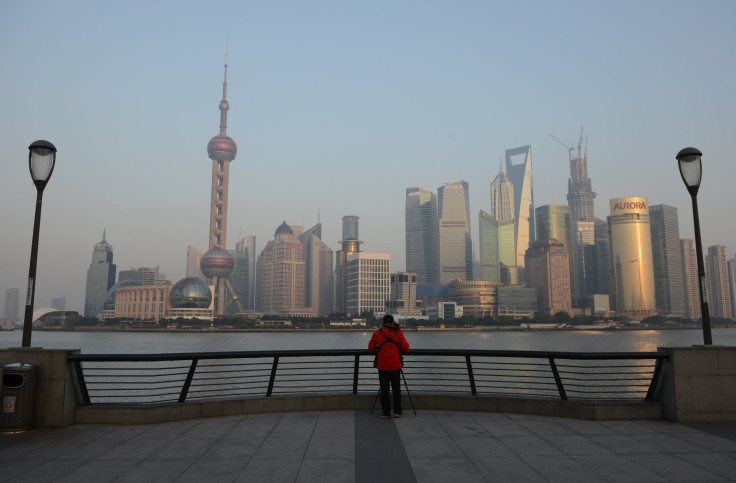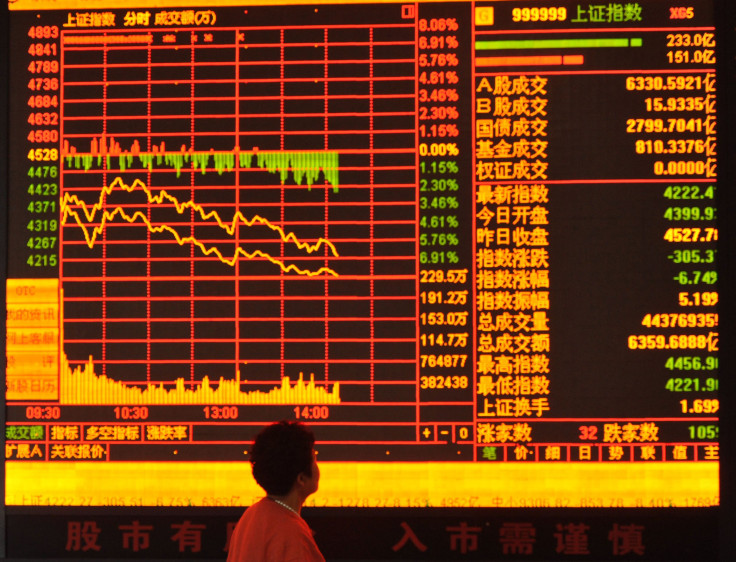Corruption Worries And New Year Pressures Hit Chinese Stocks, Concerns About Speculation Worry Hong Kong

SHANGHAI — Analysts saw investors' need for cash ahead of Chinese New Year, and worries about economic growth, the value of China’s currency and market corruption, as major factors in Tuesday’s sharp falls on China’s stock markets. Such concerns combined with the impact of falling oil prices — hit global market sentiment on Monday — and sent the CSI 300 Index of major shares down 6 percent, while the main Shanghai Composite Index (SCI) fell more than 6.4 percent to 2,749.
It was the first time the SCI had fallen below 2,750 since late 2014, early in the boom that briefly took it above 5,000 points last June, before it fell back sharply. Some analysts said worries that China might increase tax on oil-related products had added to market anxieties. The fall came in spite of a major injection of funds into the markets by China’s central bank on Tuesday.
Observers also pointed to demand for cash by businesses and individuals before the Lunar New Year holiday, which begins at the end of next week.
But concerns about economic slowdown and capital outflows, which have increased amid speculation about the value of China’s currency, the yuan, also played a role. The yuan stabilized on international markets last week, but evidence of a slowing economy has led to concerns it could fall further this year. China last week reported gross domestic product (GDP) growth of 6.9 percent in 2015, and 6.8 percent in the final quarter of the year, its slowest rate since the global financial crisis in 2009.
“Worries about further depreciation of the currency are still dragging on the market,” Shanghai-based market commentator Xi Feng told International Business Times.
Some analysts also said traders were anxious about whether the U.S. Federal Reserve, which is to meet Wednesday, might give hints of further interest rate rises. Its hike of rates in December, for the first time in almost a decade, has added to pressure on the Chinese yuan over the past month.
Analysts at Guojin Securities, meanwhile, said sentiment had been affected by a recent scandal at the Beijing branch of Agricultural Bank of China, in which 3.9 billion yuan (more than $590 million) in acceptance bills went missing from the bank’s coffers.
The apparent suicide of an official from Changjiang Securities, who was reported to have been under investigation, may also have added to worries about the impact of an official crackdown on corruption in the market, according to Shanghai-based news website The Paper.
And a wave of new IPOs, the first of which was launched Monday, could also have depressed the market, observers said.
However, commentator Xi Feng noted that the market might have fallen even further if the government had not suspended the market "circuit breaker" mechanism that it introduced briefly at the beginning of the year. The mechanism, which halted trading for 15 minutes when share prices dropped 5 percent, was seen as prompting further panic selling once trading resumed. It led to the CSI 300 falling 7 percent — prompting a suspension of trading for the day — twice in the first week of January, before it was abandoned.
“There’s no doubt the market would have plunged to the 7 percent level again on Tuesday if the circuit breaker had still been operating,” Xi said. “At least now those who want to get out of the market know they will have the option to get out.”
In Hong Kong, where the Hang Seng Index fell almost 2.5 percent, some analysts said speculative trades in the Hong Kong dollar, which fell to an eight-year low last week before rebounding in recent days, could also have had an influence on the stock market.
But Raymond Yeung, a senior analyst at ANZ Bank in Hong Kong, told IBT that he believed Hong Kong’s Monetary Authority would not adjust the Hong Kong dollar’s peg to the U.S. dollar.
“The peg to the U.S. dollar is central to the credibility of Hong Kong’s economy, as being transparent and not influenced by political concerns,” Yeung said.

© Copyright IBTimes 2024. All rights reserved.





















